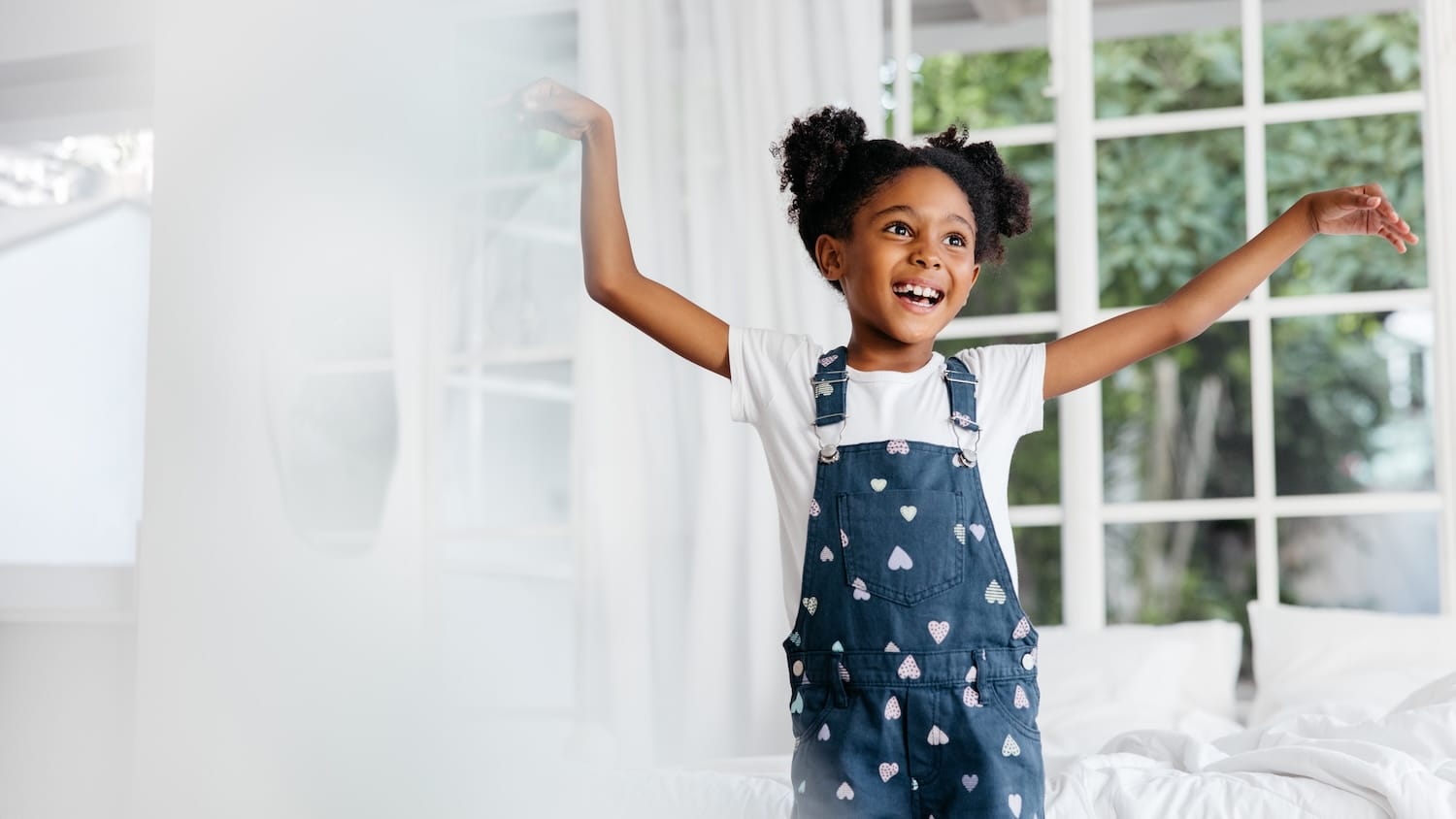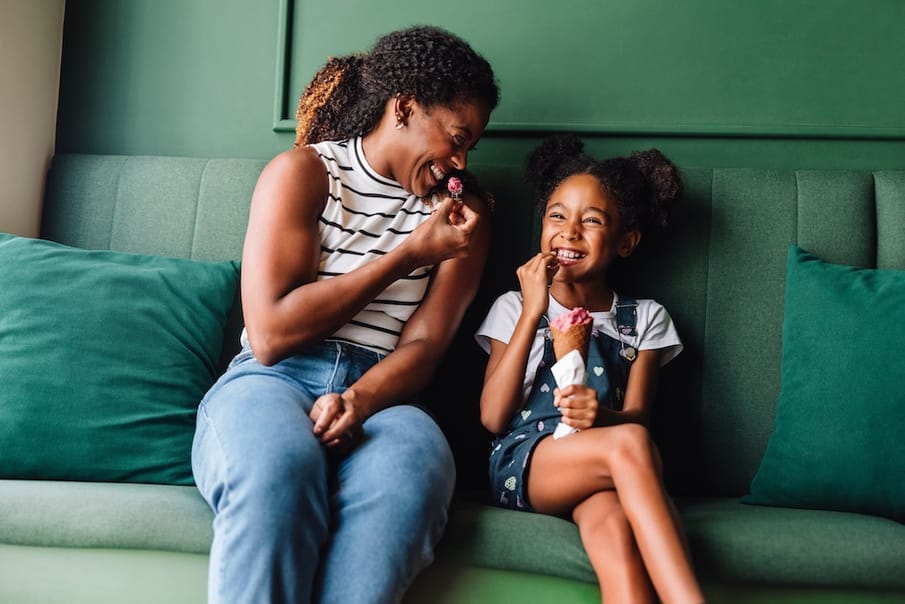Exploring the societal pressures and expectations on families, and how to feel more confident in your own instincts
Deciding whether to have kids is a deeply personal thing; for some people, it’s a future they’ve always envisioned for themselves, for others it may never have been on their radar. Some people are torn, or find their mind changes over time, while others have the choice taken away from them. But, for those who do enter parenthood, the complex decisions don’t stop – then comes the question: how many children do you want?
For many parents, the number of children you have tends to attract strong opinions from others. And often, women are made to feel guilty about choosing to be a ‘one-and-done’ parent.
Recently, I was in the supermarket with my three-year-old son. A well-meaning woman commented on how cute he was, before asking if he would ever have a sister or brother. I smiled politely, said I wasn’t sure, and left the shop. But, internally, it got me thinking – was I being selfish? If I didn’t have another child, would my son be lonely?
These seemingly innocuous questions and comments can easily trigger worry and guilt. They can be particularly harmful if you don’t want another child, you’re undecided, or if you’re experiencing fertility problems.
Between England and Wales hitting a record low fertility rate of 1.44 in 2023, according to the Office for National Statistics, along with anecdotal evidence, it seems like more parents are choosing to have one child. This could be for countless reasons, whether the result of financial concerns, career aspirations, political choices, environmental worries, or the lasting impact of traumatic births. Yet despite this, there is still pressure to avoid having an ‘only child’ – a phrase that is unfairly loaded with negative connotations of spoiled, lonely children.
So, where does the pressure to have multiple children come from? And how can you manage the stigma of being a single-child family?
Outdated stereotypes
“This pressure and expectation that women will have more than one child is rooted in patriarchal ideology that has women in traditional roles of mother and homemaker,” says psychotherapist Caroline Fearns.
“Historically – and still, in more subtle ways today – there is an underlying assumption that women’s emotional fulfillment should come from motherhood and raising children. This can lead to pressure for women to have more children, as if one child isn’t enough to meet this need.”
There are also long-standing stereotypes that only children are lonely, selfish, and maladjusted, which can fuel feelings of guilt. Early psychological research played a part in reinforcing those beliefs. In the late 1800s, psychologist G Stanley Hall declared that being an only child was a “disease in itself”. An article published in Monitor on Psychology notes that he claimed only children were typically known to be “jealous, selfish, egotistical, dependent, aggressive, domineering, or quarrelsome” because of the attention they supposedly received.
Hall’s research – which has since been deemed unscientific – consisted of observations of certain children. And, like many of the psychologists of Hall’s time, his theories were biased as a result of outdated gender stereotypes, which declared women were born solely to be mothers and wives.
Research has shown Hall’s claims have no factual basis. In the 1980s, American researchers Toni Falbo and Denise Polit conducted an analysis of 141 studies about only children, published in Psychological Bulletin. They found that only children were comparable to those with siblings in terms of wellbeing and social development.

Contemporary, large-scale studies have found few personality differences between only children and those with siblings. A 2020 study of 8,689 US students, in Personality and Individual Differences, found no differences in facets of narcissism, including arrogance or entitlement. Additionally, Falbo and Polit’s research suggests that only children tend to have more positive relationships with their parents than children with siblings.
Despite this, these negative stereotypes continue to influence people today. “Pressure can come from family members who may expect multiple grandchildren,” explains Caroline. “Social media can make it even harder, because everything is so curated and idealised. It’s easy for fears around having an only child to be amplified, especially when we constantly see carefully curated images of big, happy families.”
How to manage one-and-done parental guilt
The unfortunate truth is that guilt is an all too common side-effect of being a parent – whether it’s because you’re balancing work and family responsibilities, or comparing yourself to others online. But, there are ways to ease negative feelings about being a one-and-done parent.
Know you aren’t alone
“Many of my clients have struggled with the pressure to have more than one child. It’s so hard to hear from multiple angles that a sibling is what is best for your child, especially when you know in your heart that one child is what is right for you and your family,” says Caroline.
“Know that you are not alone, and know that what your intuition is telling you is right. Having another child because you feel like you ‘should’ is not a course of action that is grounded in compassion for yourself, or what will ultimately be best for your family.”
Set boundaries
If family members or friends are putting pressure on you, setting firm boundaries can help. It can help to state that you’re doing what’s best for your family and your child, which can help shut down an unwanted discussion. You don’t owe anyone an explanation for your choices.
Take a break from social media
If the pressure is coming from social media, curate your feed so that you are exposed to supportive content that is going to lift you up.
“If you notice guilt or worry coming up around your decision to be one-and-done, know that this is just a sign that you are a great parent who cares about your child,” says Caroline.

Write down the positives of your set-up
It also can be helpful to sit down and write down the positives, or reasons why, having one child feels right for you. “If you are feeling overwhelmed by the pressure to have more than one child, reach out for support – a trusted person in your life or therapist is a good place to start,” Caroline says.
Follow your instinct
Often, there’s no way to win as a woman. If you don’t have kids, some people may call you selfish. If you have multiple kids and work, people may call you a bad parent. If you stay at home, people may judge you for not having a career. You can only do what is best for you.
“You will also be creating a culture within your family of trusting your instincts above external pressures and expectations,” says Caroline. “This is an amazing thing to model to a child, and sets them up to be able to confidently walk their own path in life.”


Comments